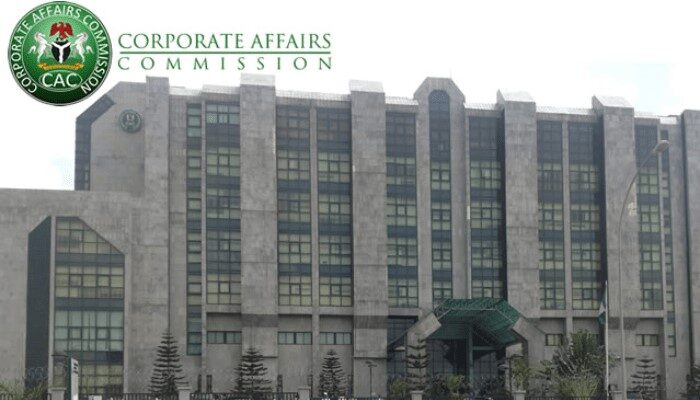THE Corporate Affairs Commission (CAC) is facing serious scrutiny after the Auditor-General of the Federation reported that the agency spent N118.75 million in 2022 without providing mandatory supporting documents, raising fresh concerns about transparency, accountability, and adherence to public finance regulations.
The revelations were contained in an 808-page federal audit report covering January to December 2022 obtained by News Point Nigeria, submitted to the National Assembly in September.
The report flagged multiple irregularities within the CAC, ranging from undocumented expenditures to unaccounted-for government vehicles and improper legal payments.
News Point Nigeria reports that part of the undocumented N118.75 million was allegedly paid to members of the National Assembly to support oversight visits to CAC offices nationwide.
However, the Auditor-General dismissed this justification, stressing that the agency violated Financial Regulations (2009), which mandate full documentation for every expenditure.
The audit found that CAC processed payment vouchers totalling N118,752,826 without attaching essential records such as memos, invoices, purchase orders, and internal approvals.
Paragraph 603(i) of Financial Regulations requires complete documentation for every payment.
Paragraph 415 prohibits government agencies from spending funds simply because they were budgeted.
The Auditor-General warned that the absence of documentation creates opportunities for misappropriation, diversion, or payment for services not rendered.
While CAC acknowledged the payments, it said they were requested by National Assembly committees for oversight activities and that the resulting reports were submitted to lawmakers, not to the commission.
The Auditor-General rejected CAC’s defence as inadequate and directed that the Registrar-General must: appear before the Senate and House Public Accounts Committees; recover the full N118.75 million; remit the recovered funds to the treasury and provide evidence of remittance.
Failure to comply could lead to sanctions under Paragraph 3106 of the Financial Regulations, including recovery from culpable officers and potential removal from office.
The report also found that six CAC vehicles were missing. Five were reportedly being used by the Ministry of Industry, Trade and Investment (FMITI), while one was assigned to a Special Assistant to the Permanent Secretary.
The audit team discovered no documentation authorising the use or transfer of these vehicles.
Financial rules prohibit ministries from taking vehicles belonging to agencies under their supervision, and they require accounting officers to maintain full control over government assets.
CAC described the vehicles as temporarily assigned “project vehicles.” But the Auditor-General dismissed the explanation, ordering CAC to retrieve them and submit evidence to the Public Accounts Committees.
Another major red flag was the CAC’s expenditure of N123.94 million on external legal services without obtaining mandatory approval from the Attorney-General of the Federation.
Financial Regulations require that all engagements of external counsel must be backed by: written instruction letters, service/delivery reports, court documents confirming the work done.
CAC defended its actions by citing the Companies and Allied Matters Act (CAMA 2020), which gives the Registrar-General authority over the commission’s finances. It also argued that statutory bodies may formulate internal policies where external guidelines are absent.
Again, the Auditor-General dismissed this defence and ordered CAC to recover the N123.94 million, remit it to the treasury, and provide proof to the National Assembly.
Non-compliance would attract sanctions under Paragraph 3106.
The alleged involvement of the supervising ministry in the mismanagement of CAC vehicles suggests ministerial overreach, undermining institutional autonomy.
A source at the Clerk’s office told News Point Nigeria that the National Assembly’s Public Accounts Committees are expected to begin hearings soon to determine the extent of violations, recover missing funds, and recommend sanctions where necessary.







